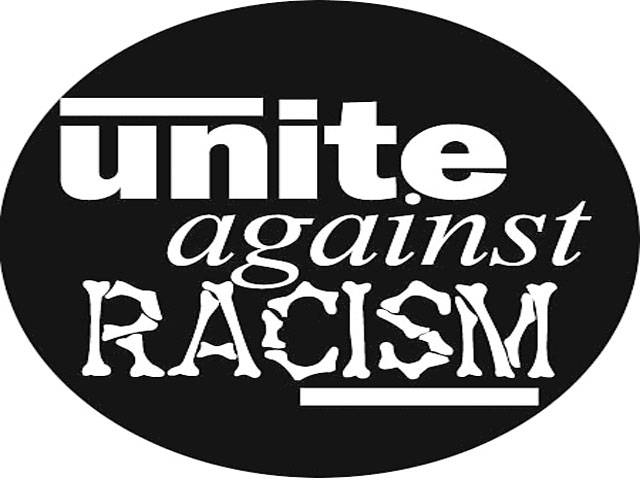JERUSALEM - Israeli rights groups and MPs on Thursday denounced a court ruling upholding a law that prevents Palestinians married to Arab Israelis from obtaining Israeli citizenship or residency. By contrast, the ruling was welcomed by Israeli rightwingers. “It is a dark day for the protection of human rights and for the Israeli Supreme Court,” attorneys Dan Yakir and Oded Feller from the Association for Civil Rights in Israel said in a statement. ACRI was one of three rights groups that had appealed to the SC over a law preventing the Palestinian spouses of Israeli citizens from obtaining either Israeli citizenship or residency. At present, Palestinian men over 35 and women over 25 married to Israeli citizens can only obtain short-term permits to be in Israel.
They have limited permission to work, but the permits must be regularly reviewed and they get no social benefits.
The petitioners said the law violated the right of Palestinians married to Arab Israelis to a family life, but in a late-night ruling, the Supreme Court said human rights could not override security concerns.
Six judges backed the controversial law, while five were opposed.
“Human rights are not a prescription for national suicide,” wrote Justice Asher Grunis, who is poised to become the next Supreme Court president.
Yakir and Feller accused the court of stamping “its approval on a racist law, one that will harm the very texture of the lives of families whose only sin is the Palestinian blood that runs in their veins.”
In July 2003, parliament adopted a law limiting the right of non-nationals to residency in the Jewish state, blocking citizenship for Palestinians married to Arab Israelis.
Initially applicable for one year, the law was extended for security reasons but has been challenged by rights groups on more than one occasion.
Arab-Israeli MP Jamal Zahalka, of the Balad party, said the court “had failed the test of justice.”
“This decision will encourage the racist groups in the Knesset (parliament) to enact more anti-Arab, anti-democratic and anti-human rights laws,” he warned.
“The court’s ruling pours oil on the fire of racism burning in the Knesset and removes any fear that the Supreme Court will repeal laws on grounds of unconstitutionality,” he added.
Mohammed Barakeh, an Arab-Israeli MP with the Hadash party, said the ruling proved a “wave of racism” was sweeping through Israeli institutions.
“This law, which differentiates between people in a repulsive, racist fashion, sets standards for an individual’s personal life and denies Arabs their right to choose their life partner,” he said.
Adalah, which works to protect Arab-Israeli rights and was one of the petitioners, also condemned the ruling, with its lawyers Hassan Jabareen and Sawsan Zaher saying the law “has no parallel in any democratic country in the world.”
“The court has failed in its basic responsibility as a defender of the Palestinian national minority,” they said in a statement.
Zehava Galon, an MP from the leftwing Meretz party who filed her own appeal to the Supreme Court against the law, echoed Adalah’s criticism.
“The Supreme Court has failed in its duty to defend the principle of equality of all citizens before the law and to fight against racism,” she told Israeli public radio.
Judicial commentator Moshe Negbi said the ruling showed the Supreme Court had shown preference to the state’s Jewish character “to the detriment of its democratic character.”
Zeev Elkin, chairman of the ruling rightwing coalition, welcomed the court’s demonstration of “common sense” but expressed concern “that almost half of the Supreme Court judges thought it was possible to open the gates of Israel to tens of thousands of Palestinians” who were trying “to implement the right of return by stealth through marriages of convenience.”
Rightwing student group Im Tirtzu welcomed the move as a step to “prevent the state of Israel from being flooded by hundreds of thousands of Palestinians.”
The group denounced the decision to oppose the ruling by outgoing Supreme Court President Dorit Beinish, describing it as “a disgrace” and expressing hope that her retirement from the court in February “will signal an end of the anti-Zionist era in the Supreme Court.”
Tuesday, April 16, 2024
‘Racist’ Israel citizenship ruling

IHC dismisses Bushra Bibi's plea seeking her shifting to Adiala Jail from Bani Gala
4:25 PM | April 16, 2024
Punjab CM visits Tehsil Headquarter Hospital Murree
3:25 PM | April 16, 2024
High-level Saudi delegation in Islamabad to hold meetings with Pakistani leadership
2:07 PM | April 16, 2024
Saudi foreign minister meets PM Shehbaz Sharif
1:17 PM | April 16, 2024
Decision to retaliate against Iran attacks rests with Israel, says Pentagon
1:05 PM | April 16, 2024
Political Reconciliation
April 16, 2024
Pricing Pressures
April 16, 2024
Western Hypocrisy
April 16, 2024
Policing Reforms
April 15, 2024
Storm Safety
April 15, 2024
Democratic harmony
April 16, 2024
Digital dilemma
April 16, 2024
Classroom crisis
April 16, 2024
Bridging gaps
April 16, 2024
Suicide awareness
April 15, 2024
ePaper - Nawaiwaqt
Advertisement
Nawaiwaqt Group | Copyright © 2024





